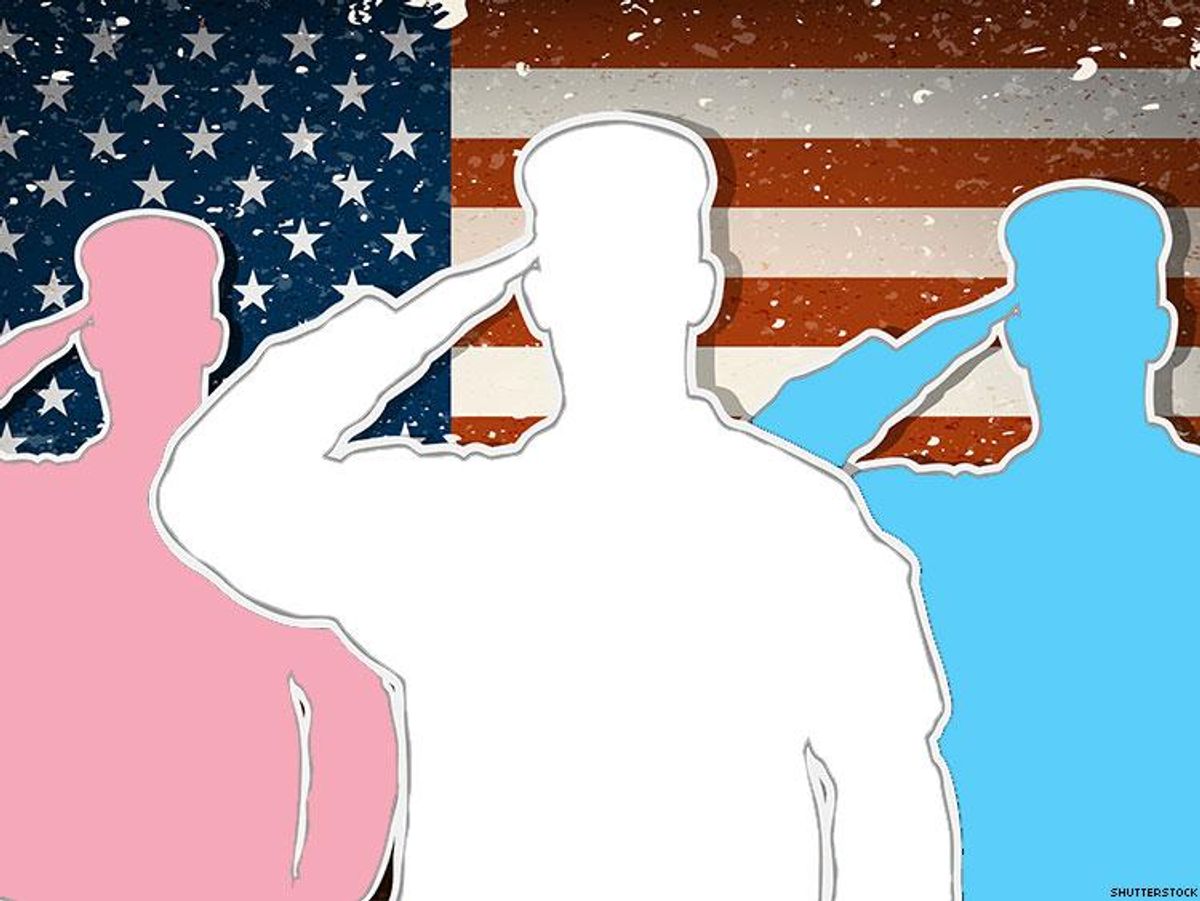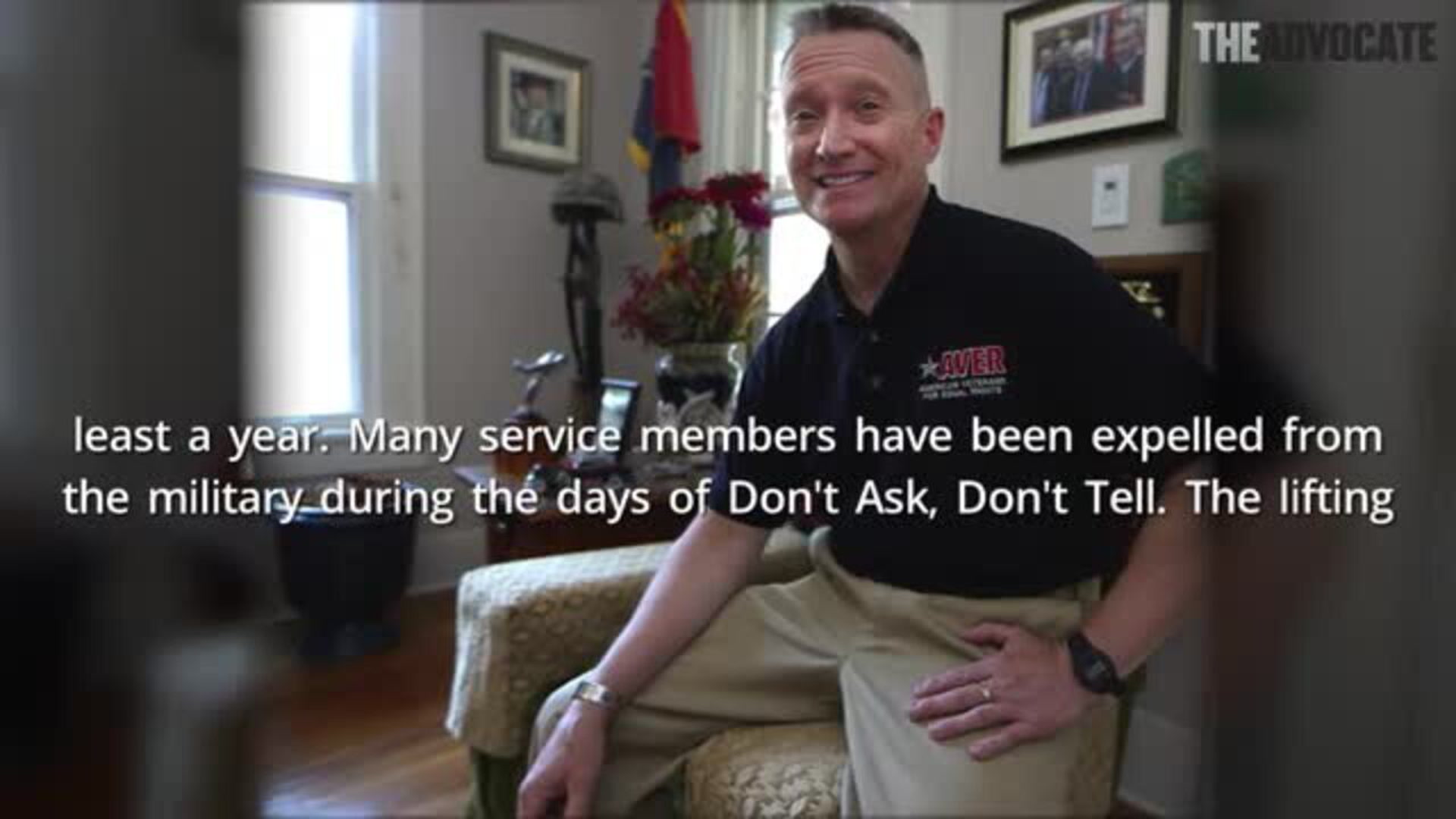The Pentagon -- the largest U.S. employer of transgender people -- will announce the end of its ban on trans troops July 1, USA Today is reporting.
Transgender activists have long fought for the lifting of the ban, as many trans people -- an estimated 15,500 -- are already serving in the military. Most have not been open about their status, as they could face discharge. A few have come out and remained in the service, however.
"Top personnel officials plan to meet as early as Monday to finalize details of the plan, and Deputy Defense Secretary Bob Work could sign off on it by Wednesday," USA Today reports. Defense Secretary Ash Carter would have to give final approval.
Finishing the work involved with lifting the ban will still take another year. Each branch of the military will have a year "to implement new policies affecting recruiting, housing and uniforms for transgender troops," according to the paper.
The Pentagon convened a working group on open service by trans troops a year ago. Since the 1970s, the armed forces have deemed transgender Americans unfit to serve. But many studies have provided evidence that there is no medical justification for barring them from the military.
Unlike "don't ask, don't tell," the now-defunct policy that prevented open service by lesbian, gay, and bisexual people, the transgender ban is a military regulation, not written into federal law. Therefore congressional action is not needed to lift it.
DADT, enacted in 1993, was repealed by Congress in December 2010, and the repeal went into effect the following September. It was adopted as a compromise after Congress failed to go along with President Bill Clinton's plan to end the ban on LGB troops altogether, but it really did nothing to improve their situation, as thousands of service members were discharged under the policy.
It has taken six more years to lift the ban on trans troops. Victoria Rodriguez-Roldan, director of the Trans/Gender Non-Conforming Justice Project, National LGBTQ Task Force, called the ban the "final remnant of don't ask, don't tell."
"This decision is a great victory for the many trans people who have served and sacrificed in the military over the years," she continued in a prepared statement. "They also served in fear of being discharged from the service for simply being who they are. Thankfully this now will change. We look forward to hearing more implementation details."
"Transgender service members have been awaiting this announcement for months and years: it has been long overdue," said Matt Thorn, executive director of LGBT military group OutServe-SLDN, in a press released. "Secretary Carter, with his statement, has given a breath of relief and overdue respect to transgender service members who have been and are currently serving our country with undeniable professionalism, the utmost respect and illustrious courage, with the caveat to do so silently. Today, we mark history, once again, by ending the need to serve in silence. Today, we as a nation say (in the words of Attorney General Loretta Lynch) 'we see you' and regardless of your gender identity we welcome you to serve this country with honor, dignity, courage and above all openly and honestly."
Further praise for the move came from the Human Rights Campaign. "At long last, thousands of brave transgender patriots will be able to serve our nation openly with the respect they deserve," said HRC president Chad Griffin in a press release. "This historic announcement will not only extend long-overdue recognition to thousands of transgender service members, it will strengthen our military and our nation. By turning the page on this disgraceful policy, we will now be able to recruit and retain the very best candidates, rather than discharging highly trained, talented transgender service members for no other reason than who they are."
Eighteen other countries, including the U.K., Australia, Canada, and Israel, allow transgender people to serve openly in their militaries.
This story is developing. Check back for updates.



















































































Here's our dream all-queer cast for 'The White Lotus' season 4